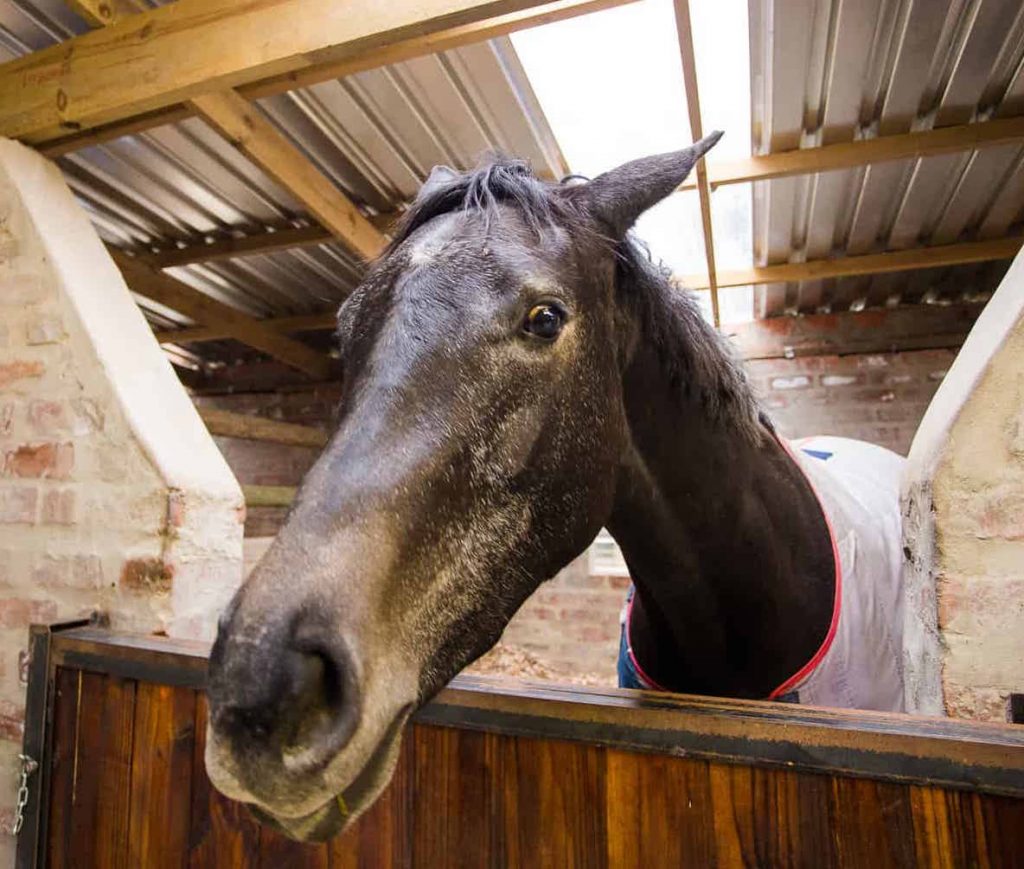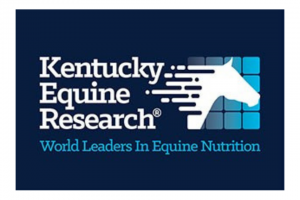If science were a horse, it would be an abused and neglected one. This horse would be taken advantage of and used as a vehicle to get humans where they want to go. It would be promoted as a Super Horse, treated like a Vaudeville act, and leveraged to win an argument or make a sale.
 A sorry state for what should be a wonderfully valiant creature. No wonder media consumers have become so skeptical about science. Research has been reduced to sound bites and weaponized to serve the myopic self-interests of, in this case, the horse industry.
A sorry state for what should be a wonderfully valiant creature. No wonder media consumers have become so skeptical about science. Research has been reduced to sound bites and weaponized to serve the myopic self-interests of, in this case, the horse industry.
It was this recent post by Kentucky Equine Research that got my knickers in a twist:
Headlined “Radios Cause Gastric Ulcers,” KER cited an Australian study that found that racehorses are more prone to ulcers if the barn radio is on. The horses do even worse if they are listening to talk radio as opposed to music. KER suggested buying their product Rite Trac for ulcer issues and perhaps turning off the radio.
KER didn’t bother linking to the research.
But I found it. The study was funded by the Australian government and conducted by Guy Lester, an associate professor at Murdoch University for the Rural Research Industries and Development Corporation. The goal of the 2008 project was to recognize and analyze risk factors for gastric ulcers in racehorses.
 Lester et al noted:
Lester et al noted:
- City horses fair worse than country horses.
- Horses with turnout do better.
- Horses that spend time with other horses do better.
- The longer horses are in training, the more likely they are to develop an ulcer.
- Certain trainers have higher rates of horses with ulcers.
- Oh, and by the way, radio noise (which is more prevalent at those aforementioned city barns) seems to be a minor factor.
Can we be assured that the study’s authors knew what they were doing and, in the words of Dr. Frans de Waal ‘knew their subjects intimately’ before studying them?
Probably not.
For instance, the authors acknowledge that horses got ulcers when taken in from turnout and stalled for seven days. But despite the widely acknowledged consensus on horses’ need to move a lot and be with herd mates, they attribute the developed ulcers to altered feeding behavior, not the reduction in mobility and herd interaction.
 The study was neither conclusive nor well designed, but it nonetheless had some salient points, which were, in turn, virtually ignored by KER.
The study was neither conclusive nor well designed, but it nonetheless had some salient points, which were, in turn, virtually ignored by KER.
Because of people’s interests in making money and serving their own, very human agenda, priorities get turned upside down. Bad practices are routinely justified. Rationales are put forward with conviction. All while the horses’ best interests are swept under the rug.
What a shame if the outcome of this “research report” and the subsequent spread of it, like bad gossip, through social channels results in:
Horse owners feeling righteous about their perpetually stalled horses because they’ve now turned off the radio.
Horse owners feeling okay about their chronically stressed horses because they’ve ordered Rite Trac.
We can do better.
thank-you! Exactly. That’s how we do better, by looking closer and getting at the facts of the “research.” This and any other research…enough of the sales and exploitation already.
thanks for catching this Maddie – I too read that and thought they must be really bad talk shows. Lots of yelling. Narrowing it down to that one issue certainly overlooked the problem.
There seem to be many ongoing studies looking at single issues in horses. Isolating factors rather than looking at that whole picture. The study on round penning where they used a remote control vehicle was another of those “scientific” studies that got my knickers in a twist.
Well said Nancy, that one was egregious.
Maddie, thank you for bringing this issue to light. Professors who have agendas are cranking out students who are stamped with the same agenda, probably well meaning but lacking real horsemanship.
In contrast, trials and studies by scientists start out as a theory to be tested and disproved if found faulty, not the other way around. There are too few good horsepersons involved in science trials. And vet schools are not helping graduates understand practical equine behavior. Horses are flight animals, not carnivores like cats and dogs. Their motivations and behaviors are quite different.
Thanks for going to the source! It is always more complicated than the “ sound bites” would have one believe and rarely does a study give cause and effect results. Thanks again for reminding us all the importance of going to the source.
The next question that concerned scientists and horsemen should ask is ‘how can we help people sort the science from the sale’s pitch’?
The very first thing that I do when I read a headline is to jump to the url for the post or to the author or the article and see what type of affiliation it has to something commercial. If there is any commercial affiliation at all, that automatically registers as a ‘beware of spin’ in my brain. Never take these posts/articles at face value. Always dig deeper, as Maddy did on this one, to find the real story.
Secondly, if it sounds simple; if it sounds far-fetched; if it sounds designed to grab the public’s attention, then that is most probably exactly what it is. Always look for the back-story on these articles.
Separating real science from pseudo-science from outright quackery and from commercialism takes education and effort. Unfortunately, I think too many people in our sound-bite and digital age want to expend little effort and prefer to be spoon-fed. Most humans also really want their preconceptions reinforced. In this case, turning off the radio and buying a supplement rather than making substantive changes in a horse’s (and probably the human’s) lifestyle.
Thank you for your article. Today more than ever all people must be critical thinkers